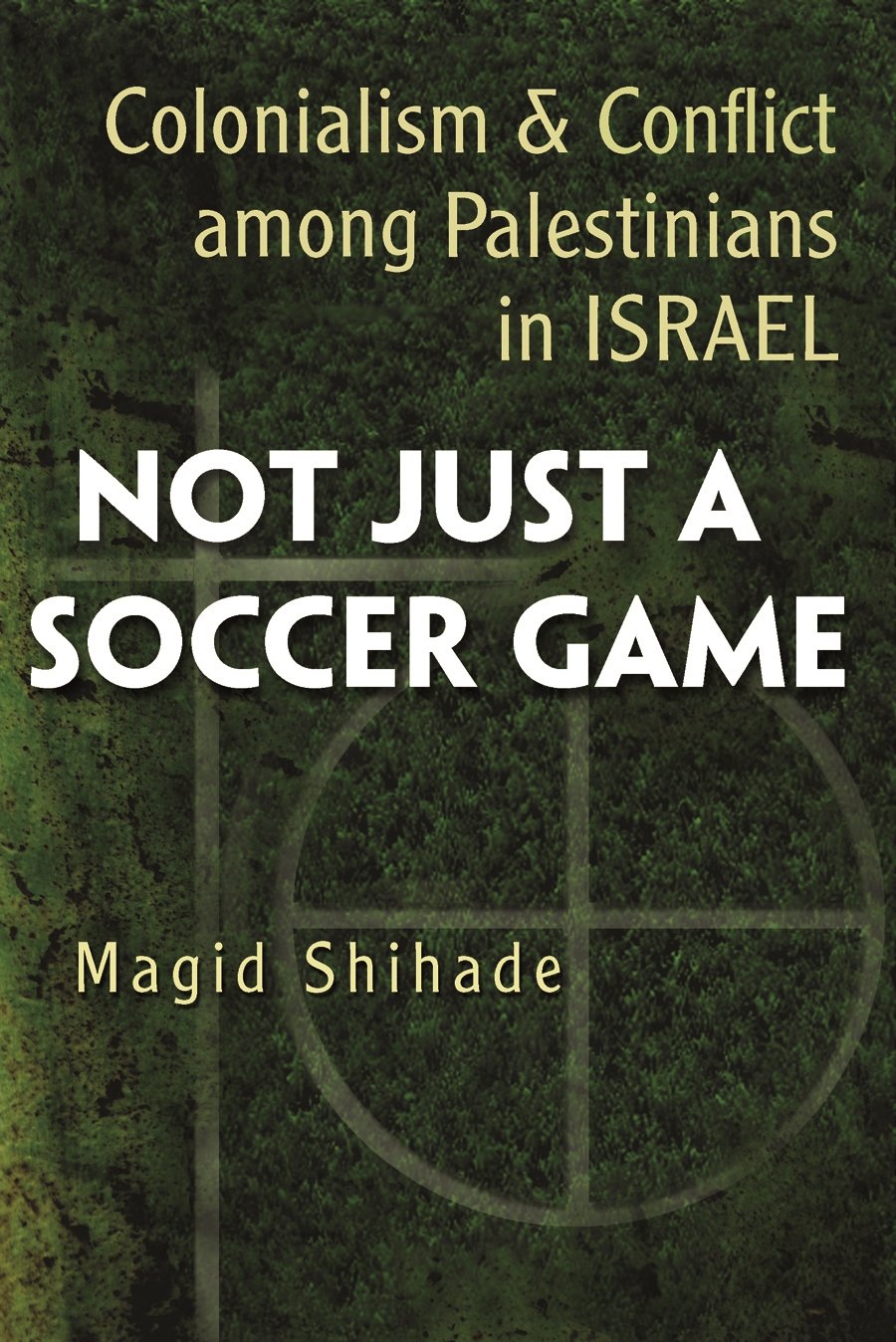Not Just A Soccer Game:
Colonialism & Conflict among Palestinians in Israel
By Magid Shihade
Syracuse University Press, 2011
The scoreboard at the end of the April 11th, 1981, soccer match between Julis and Kafr Yassif indicated Julis the clear winner, but in reality both teams had lost through a tie. The real score was one to one: one dead for the predominantly Christian town of Kafr Yassif and one dead for the Druze town of Julis. The ensuing weeks made this simultaneous loss even more apparent as tensions continued to grow between the two neighboring Palestinian-Arab towns in northern Israel and ultimately resulted in a violent attack by the citizens of Julis upon the city of Kafr Yassif.
Onthe surface, the violence may appear to be just another example extremely passionate soccer fans, but Magid Shihade in his “Not Just a Soccer Game”critically examines what he believes are the true roots of the terrible violence. Using the soccer game as a case study, Shihade explores the topics of ethnic and religious violence, the Palestinian-Israeli conflict, and the role of the state in intercommunity violence. Shihade makes a case for why the violence escalated so quickly and what prevented the two towns from finding common ground.
Shihade organizes the book into four sections, although there is substantial overlap in content from one section to another. In the first section, he uses his personal insights, as a resident of the town of Kafr Yassif, to paint a vivid picture of the violence between the two cities. The following section explores the dominant theories of communal and ethnic violence as understood by contemporary political and social scientists. In the last two sections, Shihade focuses on the history of violence between the Druze and Christian sects of the Levant region, with a specific emphasis on the role he thinks Israel has played in fomenting the violence between different Palestinian groups.
Applying the research methods of the great Muslim historiographer, sociologist, and economist Ibn Khaldun, Shihade builds his case for why the state of Israel deserves the vast majority of the blame for the ensuing violence and not the Palestinian Arabs of Kafr Yassif and Julis. Ultimately, he concludes that Israeli officials nurture a close relationship between their state and the Druze to create a larger conflict and further divide the Palestinian Arabs of Israel, which he argues is no less than official policy.
While Shihade’s work reads like an academic paper — less a human interest story and more a piece likely to be found in a political science journal — readers will easily discern that he is a former resident of Kafr Yassif (which raises interesting questions, given Ibn Khaldun’s emphasis on impartiality). Whether the reader agrees with his conclusions or not, Shihade nonetheless presents the story almost entirely from the perspective of only one of the three players in the conflict. Nevertheless, his book has much to offer for anybody generally interested in the Palestinian-Israeli conflict and more specifically in the interaction between the Israeli state and its Arab citizens.
This article appeared in Al Jadid Magazine, Vol. 17, No. 64, 2011.
Copyright © 2012 AL JADID MAGAZINE

